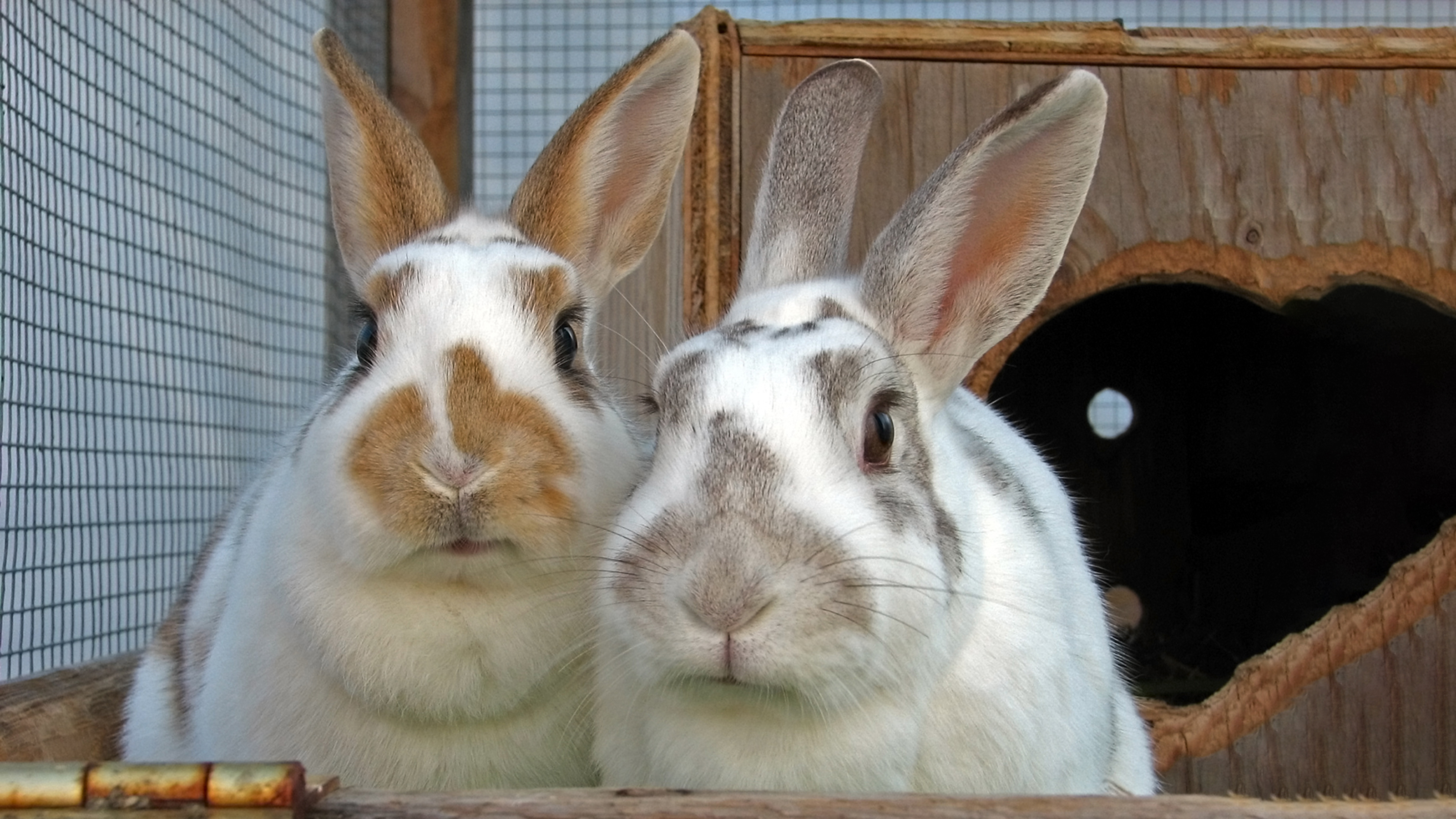
Flystrike in rabbits
Flystrike, also known as myiasis, can affect many species but is especially common in rabbits.
Flystrike occurs when certain types of fly lay their eggs on a rabbit, which then hatch into maggots. This is a horrible disease, as these maggots then eat the rabbit’s flesh. This is often fatal, due to infection or from toxic shock.
Flies, especially bottle flies, like to lay their eggs in warm, damp places. These flies are attracted by the smells of faeces, urine and blood, and therefore like to lay their eggs on any animals that are injured, or dirty and damp. In the world of pets, sadly rabbits are most at risk of being in this condition, especially as flies are also attracted to the smell of their scent glands.
When the eggs hatch into maggots, which can be within hours, they start to eat the flesh of the rabbit, with disastrous and often rapid results. Affected rabbits can lose large parts of their flesh to the maggots, and the severe shock associated with this is often fatal.
Due to the rapid development of flystrike, cases can become very serious in a very short space of time.
Read more on flystrike
The way to prevent flystrike is by keeping your rabbit clean and in good health, and applying preventative treatments in peak season. Rabbit owners can also stick to the following regime to keep their rabbits safe from flystrike:
Keeping your rabbit and their home clean and dry
Keeping your rabbit clean and dry is the main way to prevent them from developing flystrike. Monitor your rabbit’s urination by checking for damp fur regularly. Any incontinence will lead to urine soiling of the fur and attract flies.
Monitor your rabbits diet
Feed your rabbit a healthy diet, of hay or fresh grass and vegetables. This will:
- Help keep their digestive system in good working order, reducing the risk of diarrhoea.
- Keep them a healthy weight. Tubby rabbits will struggle to clean themselves properly, and can get dirty very quickly, especially around their bottom.
- Help keep them in tip-top dental health. Overgrown teeth can cause pain, and affect the way your rabbit eats and grooms. This can quickly have a knock-on effect on their tummy health and cleanliness, and lead to soiling.
- Avoid rapid diet changes, as this can upset rabbit’s tummies. Do not overfeed your rabbit, as this can lead to development of diarrhoea and cause soiling.
Preventative flystrike treatments for rabbits
Products are available from your vet to help prevent flystrike. These can repel flies or prevent fly eggs from developing into maggots. Products are sponged or sprayed on to your rabbit regularly – the schedule will depend on the product you are using, and your vet will be able to advise you on the best option for your rabbit. Products should be used throughout the fly season, which runs from about May to October.
Seasonal flystrike products are a part of our Complete Care Health Plan for rabbits, which also includes their annual vaccinations against deadly diseases myxomatosis, RHD and RHD2, as well as a range of other perks!
Although live maggots are the most obvious sign of flystrike in your rabbit, live maggots may not be the first thing you notice.
Other signs of a rabbit with flystrike include:
- Your rabbit becoming quiet and tired
- Lack of appetite
- Stopping drinking
- A strong smell from them or from the hutch
Although these are quite generalised signs, if you ever see your rabbit behaving abnormally, always make sure to have a good check of them all over to make sure there is no evidence of flystrike.
Even if you cannot see live maggots, if your rabbit seems unwell, always take them to see your vet. Rabbits naturally hide it if they are feeling unwell, so if they are showing signs of distress they are often quite sick and should receive medical attention as soon as possible.
If you see maggots on your rabbit, this is an emergency. Call your vet immediately, and take your rabbit to your clinic. The best thing you can do is to get your rabbit to a vet as soon as possible.
Treatment from your vet will involve:
- Removing the maggots
- Clipping your rabbit’s fur around the affected area and cleaning the area thoroughly
- Pain relief
- Antibiotics
Your vet may also recommend putting your rabbit on a drip, giving medications and supportive care for your rabbit’s gastrointestinal tract, and applying topical products to the affected area.
Your vet will do their best to save your rabbit if they are affected by flystrike, but sadly many rabbits will die from the shock, or need to be put to sleep if tissue damage is extensive.
Although flystrike is commonly associated with rabbits, it can actually affect any animal that has soiled fur or open wounds. Guinea pigs, who often have similar housing arrangements to rabbits, can also be affected and keeping them clean and dry is also of utmost importance, along with regular full-body checks.
Expert top tip
We asked Tammy Miles, Senior Registered Veterinary Nurse at Vets4Pets Leeds Birstall, for her top tips on flystrike:
 "Although flystrike is more common during warmer months, it can occur at any time of the year if the conditions are right for flies to lay eggs. If your bunny becomes soiled with urine/faeces and they are unable to clean themselves, flies will be attracted to the smell and moisture."
"Although flystrike is more common during warmer months, it can occur at any time of the year if the conditions are right for flies to lay eggs. If your bunny becomes soiled with urine/faeces and they are unable to clean themselves, flies will be attracted to the smell and moisture."
"Flies can lay eggs that hatch in a matter of hours and unfortunately it can be difficult to see them when they hatch. Once the maggots start to feed they can cause extensive damage, even if the skin is healthy."
Interested in complete peace of mind for your rabbit?
With our Complete Care Health Plan, you'll receive all the healthcare essentials, expert veterinary care and cost savings on routine treatments.

Pet Symptom Checker
Our handy Pet Symptom Checker allows you to search your pet's symptoms and helps guide you on what to do next.

Rabbit Advice
Read more of our expert rabbit advice to keep your rabbit happy and healthy.

